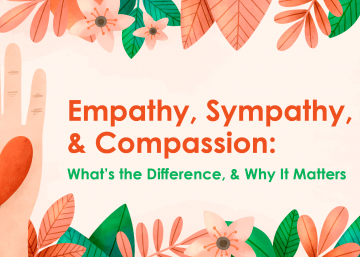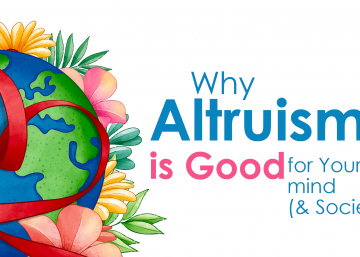What We Lose When We Ignore Kindness in Leadership
Picture two leaders. One commands silence when they enter a room, the other invites honesty. One rules with fear, the other leads with trust. Both may achieve results, but the cost and the kind of legacy they leave behind couldn’t be more different.
In high-stakes environments, kindness is often dismissed as too soft, too slow, or simply unnecessary. The assumption is that authority must be firm, emotions must be tucked away, and results must come above all. But when kindness is left out of leadership, something vital is lost, not just for the team, but even for the leader, the organisation, and the larger culture.
Let’s explore what really happens when leaders ignore kindness, and why it might be the very quality that makes leadership truly effective.
The Myth of the “Tough” Leader
In many workplaces, especially high-pressure or competitive ones, the “tough leader” approach is rewarded. But it comes at a hidden cost: people stop bringing their full and true selves to work. Decisions get made in a vacuum. Loyalty becomes fragile. And slowly, the culture erodes from within.
Kindness isn’t about being agreeable or avoiding conflict. It’s about leading with humanity. It’s about recognising that people do their best work when they feel safe, heard, and valued.
What We Stand to Lose Without Kindness
When kindness is missing from leadership, the loss shows up in measurable and often irreversible ways.
- Employee Burnout: Constant pressure without empathy leads to emotional exhaustion. People stay quiet, overextend themselves, and eventually break down or quit.
- Fear-Driven Compliance: Teams may follow instructions, but they won’t challenge bad ideas or bring forward better ones. Creativity withers.
- Low Psychological Safety: Without kind leadership, mistakes become risks, not learning moments. People withdraw or hide problems until it’s too late.
- Eroded Morale: When leaders are cold or dismissive, everyday interactions become transactional. Trust declines. Teams become fragmented.
- Ethical Drift: A leader who disregards people’s emotional or social needs may overlook ethical considerations. When empathy is absent, exploitation can be easier to justify.
These aren’t abstract problems. They effectively impact retention, reputation, and long-term success.
What Kindness in Leadership Looks Like
Kindness in leadership is not performative or passive. It’s often quiet, but deeply intentional.
It looks like this.
- A manager who listens before reacting.
- A CEO who explains layoffs with transparency and empathy.
- A team lead who checks in when someone’s behaviour seems off, not to correct, but to care.
- A founder who takes the time to make inclusive decisions, even if they take longer.
Kindness is being accountable without being cruel, firm without being authoritarian, and honest without being harsh. It’s how power meets responsibility with grace.
Why the World Needs Kinder Leaders
The 2020s have taught us that leadership cannot afford to be emotionally disconnected. The world is in flux. Climate crises, economic inequality, mental health concerns, and digital fatigue. We’re not just working differently, we’re living with different needs and expectations.
Today’s workforce doesn’t want to be managed. They want to be mentored, supported, and respected. Leadership models that ignore kindness will soon be outdated, not just morally, but functionally.
The future belongs to leaders who can navigate complexity with compassion. Who can respond to conflict without dominance? Who understand that success is not just output — but also how we arrive there, and who we become along the way.
Kindness Is Not a Bonus. It’s a Foundation
When we ignore kindness in leadership, we lose trust. We lose creativity. We lose people.
But when we lead with kindness, not as an afterthought, but as a principle, we gain something stronger than efficiency. We build loyalty, resilience, and lasting impact.
In the end, the question isn’t whether kindness belongs in leadership.
The real question is, how could we ever lead without it?







